Umberto Marengo shifts gears to deliver food during coronavirus lockdown
'It helps the head more than the legs. You feel like you're doing something useful'
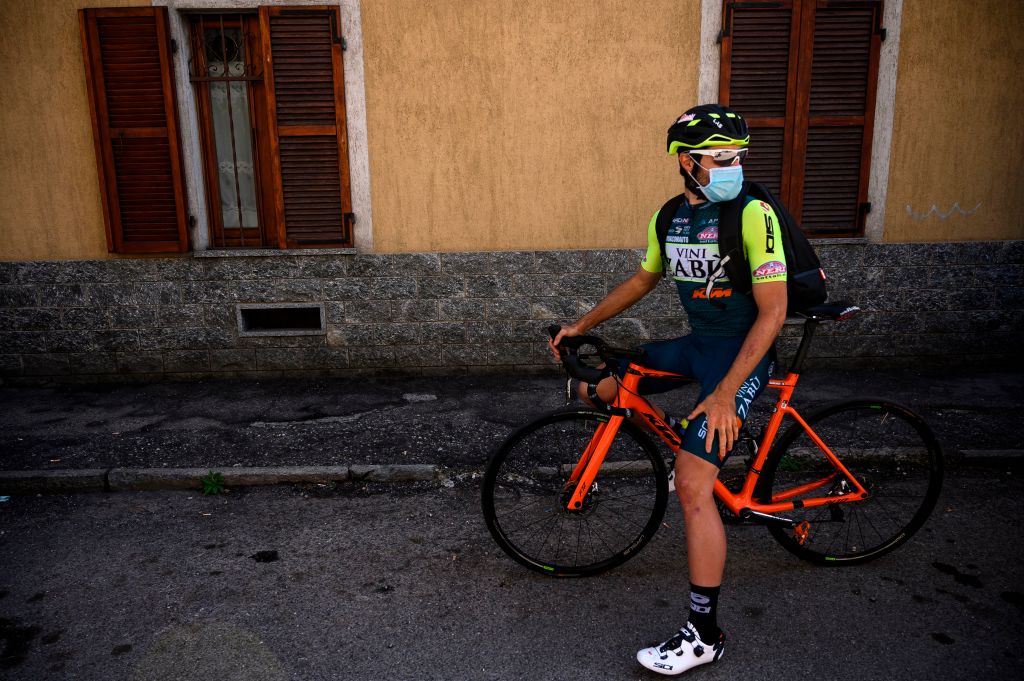
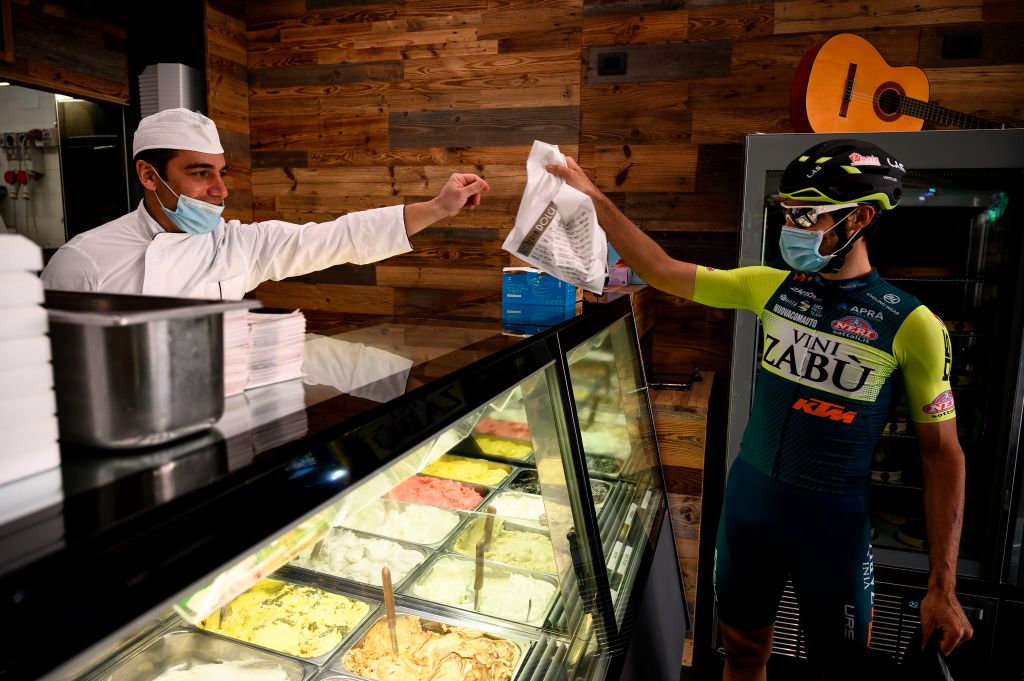
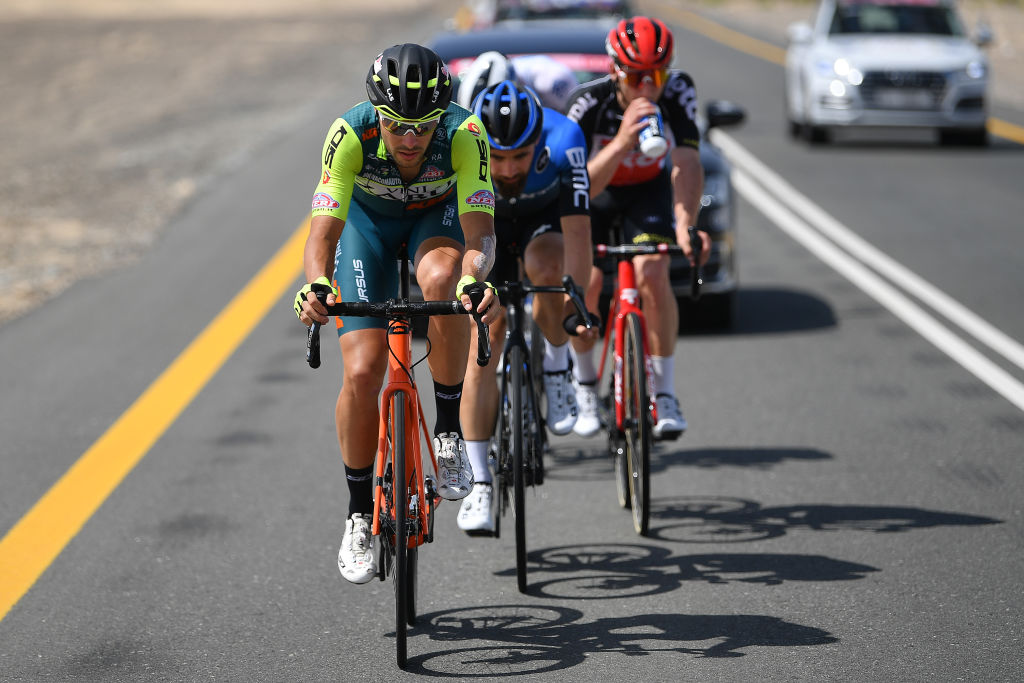
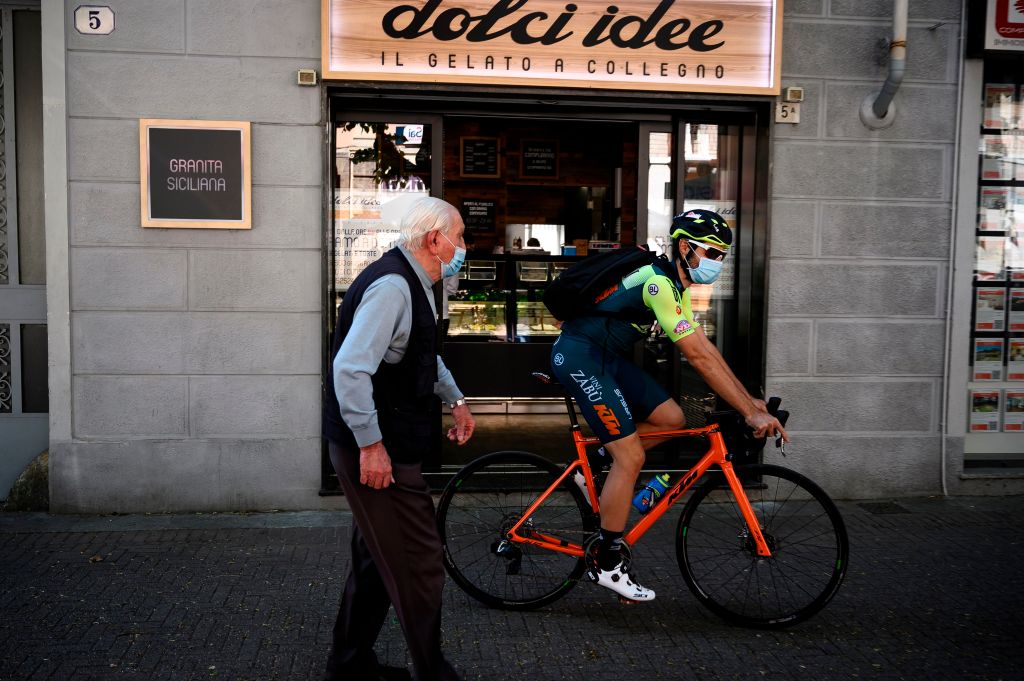
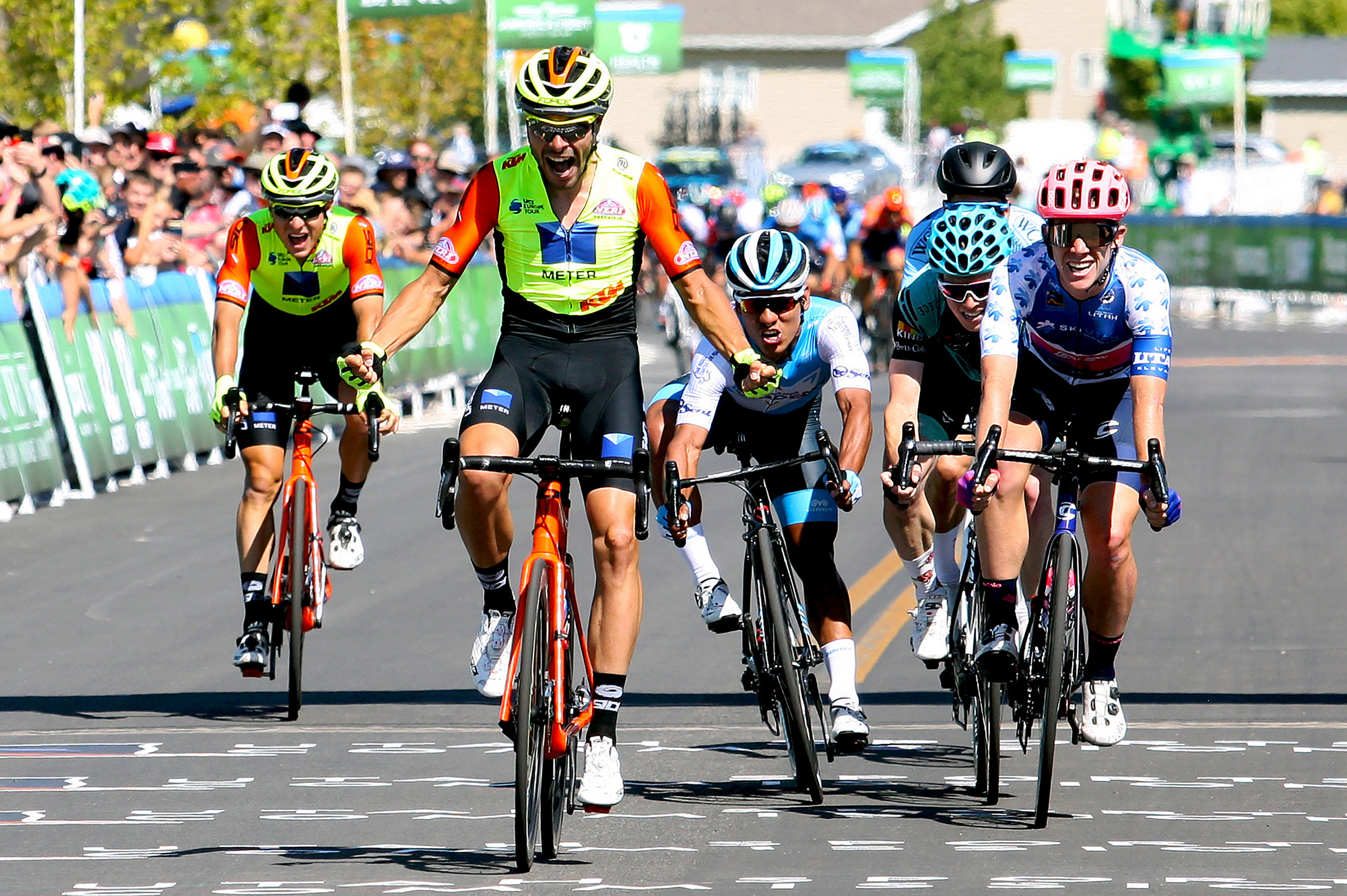
Umberto Marengo never much cared for the turbo trainer. In his seven years of toiling in the minor leagues of Italian amateur cycling, not even the dampest, drizzliest of Piedmont Novembers could ever convince him of the merits of training indoors.
That attitude didn't budge an inch when he made the belated step up to the professional ranks last year at the age of 26, but, like so many, the Vini Zabù–KTM rider has reluctantly had to submit to the practice over the last month or so, with Italy in a state of lockdown to contain the spread of the coronavirus.
"For the last month, I've found myself going on the rollers pretty much every day. It's too much," Marengo tells Cyclingnews over the phone from his home in Collegno, on the outskirts of Turin.
When the current restrictions on training outdoors are lifted on May 4, most Italian riders will have spent the bones of two months off the road. By this point in the lockdown, Marengo is hardly alone in tiring of the monotony of the virtual road to nowhere, but, unlike most of his peers – Astana's Davide Martinelli is another exception – he has had a counterpoint to his morning turbo sessions these past few weeks.
Every afternoon, Marengo has been donning a face mask, strapping a bag to his back and climbing aboard his bike to make food deliveries to the housebound in Collegno, where he has lived with his girlfriend since last year.

"When my girlfriend and I wanted to get an ice-cream, we saw that we could only get it by having it delivered to our home," Marengo explains. "That's when it struck me that I could make myself useful at this time by using my bike to perform that kind of home-delivery service. I saw that it would be useful for the village to have some extra people to help out with home deliveries.
"I asked the local council, and obviously they said they'd be happy for me to do it. I mainly deliver food – ice-creams, of course, but also people's grocery shopping to their homes. I liaise with two or three shops locally and I help them out, basically."
The latest race content, interviews, features, reviews and expert buying guides, direct to your inbox!
Lives take on unforeseen rhythms when days no longer have names, but Marengo has adapted quickly to his new routine. After breakfast and a series of core exercises, he dutifully subjects himself to the day's turbo session.
"But only an hour or, at most, an hour-and-a-quarter," he says. In the afternoon, he is occupied with an altogether more tangible kind of work. "From 3 or 3.30, I'm out making deliveries, and I do that until 7.30 or 8 in the evening. Then I come home, have dinner, and go to sleep."

Marengo carries out the task aboard his KTM bike and wearing his Vini Zabù kit, which makes him an unmistakable presence in the neighbourhood, and has seen his efforts recognised in newspaper and television reports. One article couched his bicycle deliveries as a form of training for the Giro d'Italia. In truth, Marengo explains, the benefits of his excursions are more mental than physical.
It gets him out of the house and into the open air – a rarity in a country where the lockdown has been more stringent than most – but, above all, it lends a purpose to his days. Bike racing is suspended until July 1, at the very least, and so until then, the bike racer is, first and foremost, a citizen. Collegno and Piedmont have avoided the high rates of infection endured by neighbouring Lombardy, but the past two weeks have been the most trying thus far. Marengo is glad simply to be able perform a sort of civic duty.

"It definitely helps more for the head than the legs. You get to spend some time outside and you also feel like you're doing something useful," Marengo says. "But at the same time, I'm doing an hour on the rollers in the morning and then I'm on the move all the time in the afternoon, so I think it's useful to maintain the fitness a bit, too.
"It's not like I do a big distance – maybe 40km or 50km on average – although I have done up to 70km on occasion. But when I get to people's homes, I might have to do four or five flights of stairs, so I'm on the move the whole afternoon."

Long road
A native of Roletto, 30km or so from Collegno, Marengo began racing at nine years of age, inspired by his grandfather Matteo. On finishing school and graduating from the junior ranks, he committed himself to the sport full-time, leaving Piedmont for Emilia-Romagna to race with the GS Podenzano club.
Since the espoirs category superseded the old amateur structure in the 1990s, youthful dreams of making it to the professional peloton have tended to come with a rather strictly defined expiry date. And yet, even after passing his 23rd birthday in 2015, Marengo wasn't prepared to give up on his ambition, due, in equal parts, to his love for the bike and a stubborn conviction that his best years were still ahead of him.
"I could see that I was quite late in reaching physical maturity compared to guys I was racing with as an under-23 rider," he says. "We're all different. Some riders are already ready at 20 years of age; others don't get there until they're 26 or 27. Beyond my passion for the bike, that's what made me reflect and decide to keep going. I wanted to go as far as I could and see where that left me."
A spate of wins in 2017 and 2018 convinced Luca Scinto and Angelo Citracca to give Marengo a contract with Neri Sottoli (now Vini Zabù-KTM) at the start of last season. He was aware that a 26-year-old neo-professional was something of an oddity in an era when riders barely out of their teens are competing for Grand Tours, but a stage win at the Tour of Utah offered reassurance.
"I was happy to prove I was worthy of being a professional, to myself and to others," Marengo says.
In 2019, Marengo made his childhood ambition a reality by lining out at Milan-San Remo. He set out in 2020 aspiring to make his Giro d'Italia debut, and he began the season hoping to force his way into the Vini Zabù selection with his performances in Argentina, Colombia and the UAE.

Had things gone according to plan, Marengo would this week have been putting the finishing touches to his corsa rosa build-up. Instead, with the Giro postponed until October (at best), he is delivering groceries in Collegno rather than topping up his form.
"When I saw the plans for it to be held in October, I breathed a sigh of relief because it means there's still hope of doing the Giro," he says.
And yet, at this uncertain time, Marengo stops himself from casting his mind that far ahead, an attitude that echoes the stance of the partisan Ivan in Piedmontese writer Beppe Fenoglio's novel A Private Affair, set in the Langhe during the Italian Resistance: "Leave the things of before until afterwards."
"Personally, I don't like to think too much about afterwards. I prefer to focus on what I'm doing in the here and now," Marengo says. "When we start seeing improvements and when we can start going outside to train, maybe then I can start thinking about afterwards. But at the moment, when we're in lockdown at home, thinking about races doesn't do you much good. For me, it's helpful just to take it all day-by-day and keep myself busy by doing what I need to do."
#coronavirus #campione a domicilio. Fare del bene e continuare ad allenarsi. A #Collegno, in provincia di Torino, a fare le consegne a domicilio un campione del ciclismo. @umbertomarengo pic.twitter.com/TKp9cguSJxApril 23, 2020

Barry Ryan was Head of Features at Cyclingnews. He has covered professional cycling since 2010, reporting from the Tour de France, Giro d’Italia and events from Argentina to Japan. His writing has appeared in The Independent, Procycling and Cycling Plus. He is the author of The Ascent: Sean Kelly, Stephen Roche and the Rise of Irish Cycling’s Golden Generation, published by Gill Books.